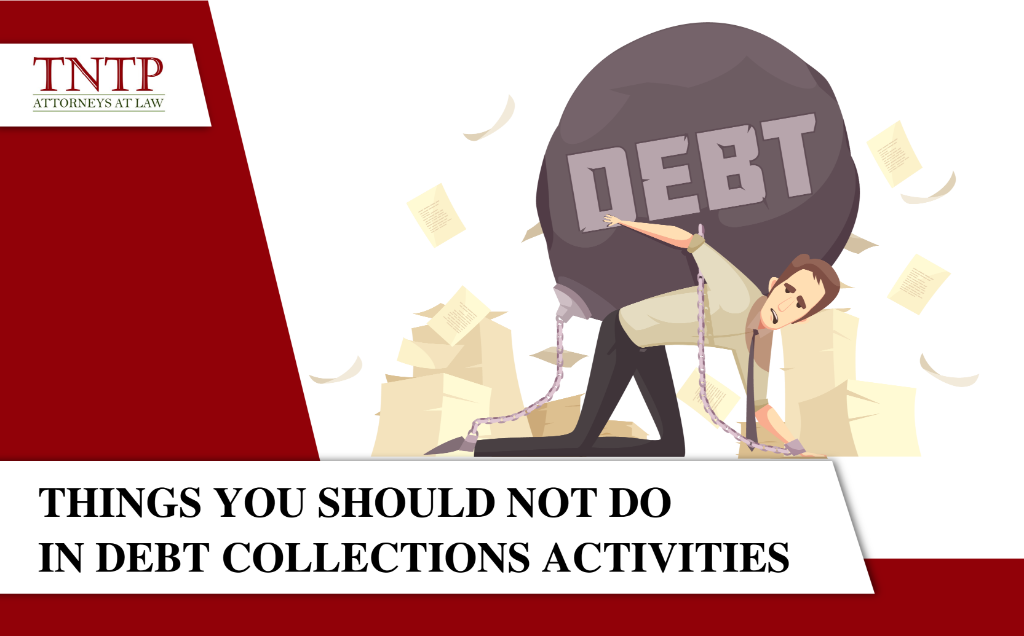Things you should not do in debt collection activities

Debt collection is an important activity and always exists in society. However, creditors are not successful in collecting debts all the time. To collect debts effectively, debt collectors need to know there are do’s and don’ts in debt collection. So what should not be done when performing debt collection activities? The article “Things you should not do in debt collection activities” will answer the above question.
1. Performing illegal debt collection activities
The first thing that the entitled party should not do is illegal debt collection acts. Performing these acts is ineffective and causes the entitled party to be administratively sanctioned or prosecuted for criminal liability. The debtor may even damage the entitled party’s reputation, honor, dignity, health, and life if they are urged to pay the debt by illegal debt collection.
So what are illegal debt collection acts? This question has been answered and analyzed in the article “Illegal debt collection actions.” Debt collection actions that are considered illegal include:
- Publicizing the debtor’s image and information without the debtor’s consent;
- Insulting, defaming the honor and dignity of the debtor;
- Calling or contacting the debtor’s acquaintances to request payment on behalf of the debtor;
- Threatening to use violence or using violence or destroying the debtor’s property; and
- Calling to request payment constantly, annoyingly.
2. Not assessing the debtor’s ability to pay
The next thing the entitled party should not do is not assess the debtor’s solvency. It is the most significant factor that directly determines the result of debt collection. It is the debtor’s solvency. If the debtor cannot pay, no matter what measures the entitled party takes, it will not be able to collect the debt. Therefore, the entitled party should not skip the step of assessing the debtor’s solvency in debt collection.
The entitled party should assess solvency before the debt arises; during the performance of the agreement; and when the debt is due. Even when the debt is overdue, the entitled party should still assess the debtor’s ability to pay. In addition, solvency should be reviewed periodically for timely solutions as soon as the debtor shows signs of insolvency.
3. Not monitoring and urging the debtor to pay the debt regularly and continuously
The third thing the entitled party should not do is “not monitoring and urging the debtor to pay the debt regularly and continuously.” If the entitled party has determined to collect the debt, the entitled party must not let the debt “drift” away. In fact, many creditors have forgotten and left gaping for a long time without contacting the debtor or collecting the debt in a superficial way. By the time the entitled party has remembered the debt, the debtor no longer has the ability to pay or has changed the contact and address. At this time, debt collection becomes much more difficult with a low success rate.
To collect debts effectively, especially overdue debts, the entitled party must monitor and urge the debtor to pay the debt. That will make the debtor understand that the entitled party still remembers the debt and they have to pay the debt. If the entitled party accepts all reasons and solutions offered by the debtor easily, the debtor will delay payment and think that the entitled party has forgotten the debt. The debt collection will gradually become a standstill and the success will be lower.
Here are the things you should not do in debt collection. In addition to the above three things, there are still other things that the entitled party should not do when collecting the debt. However, the above three contents are the most basic principles so that the entitled party can achieve good results in debt collection. TNTP hopes this article is useful to you.
Best regards.


